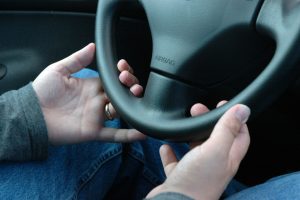Tesla Motors has come under fire in the last year after a series of collisions – one fatal – that involved the use of its Autopilot assisted driving system. The question is whether Tesla improperly deployed and marketed this system, which despite the name still does require substantial involvement from the driver. 
The aggressive “beta-test” of its Autopilot self-driving technology forced government regulators to step in, with input from other car manufacturers, to consider how human drivers should interact with increasingly more sophisticated vehicles and whether the advancements were simply too much too soon. A recent analysis by Consumer Reports magazine urged Tesla to disable the automatic steering feature until either the software is updated to require drivers’ hands on the steering wheel or else until no driver involvement is required at all.
CNN reported federal auto safety investigators with the National Highway Traffic Safety Administration (NHTSA) cleared Tesla of having an inherent vehicle defect resulting in a fatal car accident in Florida in which Autopilot system was engaged, but failed to detect an oncoming white tractor-trailer against the brightness of the mid-day sky. The Autopilot system was built to keep a vehicle in its own lane, and the car is capable of braking on its own. The feature is designed to be used on limited access highways with on- and off-ramps and not, as decedent driver was using it, on roadways where cars or trucks can cross in front of the Tesla.
In the Florida Tesla crash, the driver reportedly drove under a tractor-trailer truck that had turned left in front of him. Decedent was traveling approximately 74 mph at the time of the collision, and investigators found that neither the driver nor the Autopilot system made any attempt to brake before impact.
The NHTSA report went on to say that the Autosteer component of the Autopilot technology has been associated with a 40 percent reduction in crash rates, taking the number of collisions from 1.3 per 1 million to 0.8 per 1 million.
A spokesman for NHTSA said the investigation was in many ways a learning experience for federal regulators. This kind of knowledge will be increasingly important as a growing number of car manufacturers have been dabbling in similar sorts of driver assistance technology features. The spokesman said regulators are going to be looking more closely in the future at how these systems are named and marketed to make sure motorists aren’t misunderstanding the systems and their capabilities.
The Consumer Reports article, meanwhile, asserts that the marketing hype when the Autopilot feature was first rolled out promoted a presumption – both premature and dangerous – that these systems were fully capable of driving on their own. For example, Tesla indicated in one press release that drivers would be relieved of the “most tedious and potentially dangerous aspects” of driving. But here’s the reality: While the vehicle can technically drive itself, drivers have to be ready at a moment’s notice to take over the wheel.
The Consumer Reports article takes the stance that there are two conflicting messages here:
- Your vehicle is able to drive itself.
- You might need to take over at a moment’s notice.
This creates confusion and a false sense of security for consumers and motorists. The analysis opines that while a number of auto manufacturers have introduced this kind of technology, Tesla in particular has been aggressive in deploying it.
In terms of product liability, this could be a type of warranty that is breached. An express warranty is a promise or guarantee that a manufacturer or seller represents to a buyer about the product. Often, these become part of the sales contract. There are also implied warranties, which unless expressly disclaimed, the product has to reasonably conform to the buyer’s expectations. In a sense, they are what they say they are. Any failure on these fronts would be a breach of warranty upon which a product liability claim could be asserted.
If you are the victim of Massachusetts product liability, call Jeffrey Glassman Injury Lawyers for a free and confidential appointment — (617) 777-7777.
Additional Resources:
Tesla Autopilot not defective in fatal crash, Jan. 19, 2017, By Peter Baledes-Dapena, CNN
More Blog Entries:
Total Knee Operations Increasingly Common, Alternatives Scant, Feb. 10, 2017, Boston Product Liability Lawyer Blog
 Product Liability Lawyer Blog
Product Liability Lawyer Blog

